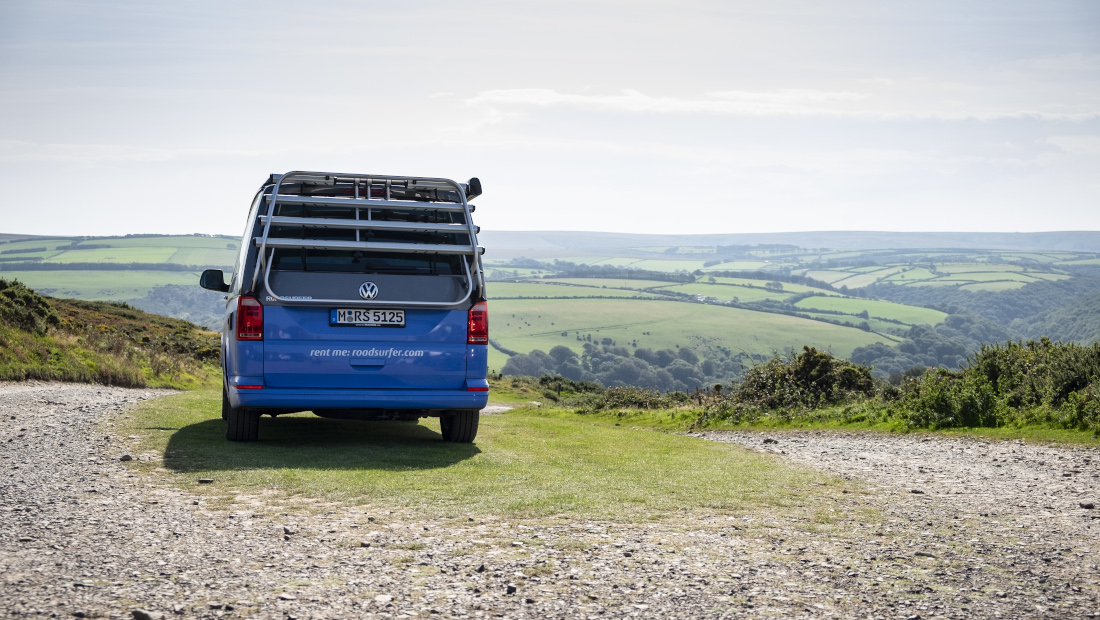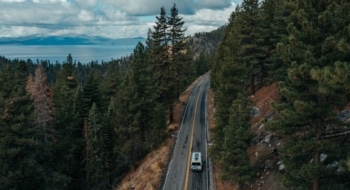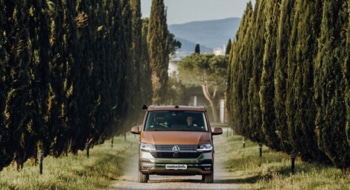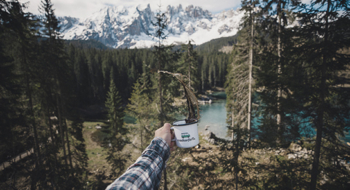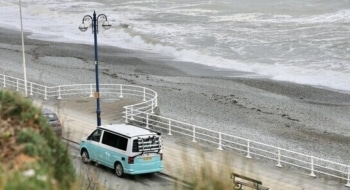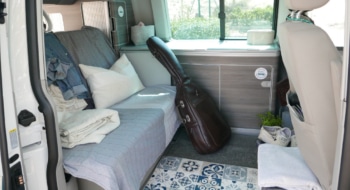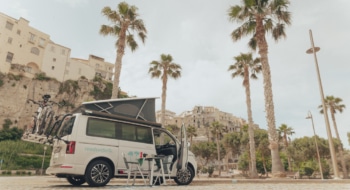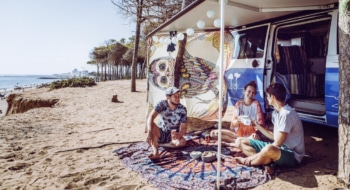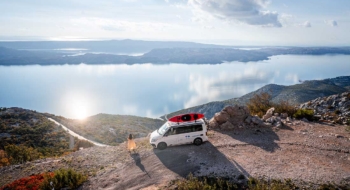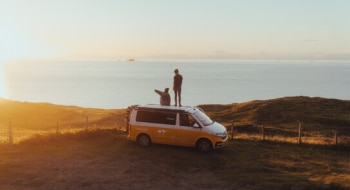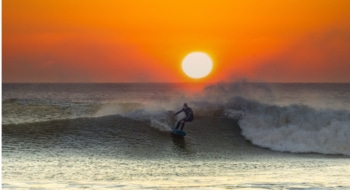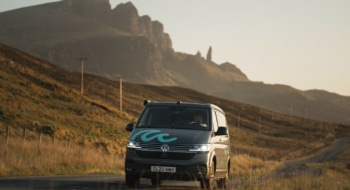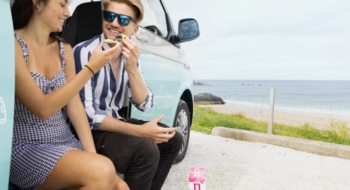Wild camping in the UK
Camping in the UK – defined by wild beauty, impressive castles, and windy coasts with an extra portion of fish ‘n chips. Whether you’re interested in history, want to immerse yourself in nature, or get out and be active – a camping trip through England, Wales, and Scotland means freedom and adventure. And what about wild camping in the UK? Find out more in this roadsurfer guide!
© roadsurfer GmbH / Jannis Reichard
Is wild camping allowed in England?
Wild camping in the UK is a bit tricky. Officially, there is no law that allows wild camping in England, because all land is privately owned. The land is either managed by an individual or an organisation. That’s why the law says that you have to ask permission before camping somewhere or staying overnight with your campervan.
In reality, of course, it’s often quite difficult to find the landowner. If you can’t ask, it’s better to go to an official campsite.
If you want to stay overnight in a car park, you need a local permit. Check with the local council or the police in your municipality.
There are exceptions in some national parks. In the Brecon Beacons National Park in south Wales, there is a register of farmers who allow overnight camping on their land, as well as a range of dedicated caravan parks for motorhome camping. You can also find local campgrounds and holiday parks suitable for your campervan trip at the Exmoor National Park, among other camping sites.
Wild camping in Scotland
You may have heard that Scotland takes a very different approach to wild camping. While this is true for tent camping, it’s important to note the difference between wild camping and roadside camping before setting off on your campervan or motorhome trip.
Wild Camping
Scotland uses ‘Everyman’s Rights’ which allow for ‘lightweight’ wild camping, where small groups can camp for two or three nights. Wild camping excludes camping in or near a parked motor vehicle. To benefit from Everyman’s Rights, you’ll need to be on-foot and keep your distance from residential properties and places of interest. The Scottish Outdoor Access Code website is a useful resource to understand the rules of wild camping in Scotland. You could take advantage of wild camping by finding a suitable car park for your camper and taking off on a multi-day hike.
Exceptions apply in areas such as Loch Lomond and the Trossachs National Park from March to September. The ban on camping here was imposed due to too many inconsiderate campers and to protect the region – a good reminder to be considerate when wild camping in Scotland or anywhere in the world!
Roadside Camping
On the other hand, roadside camping (camping in or nearby to a motor vehicle) is more restricted throughout Scotland. The Scottish Outdoor Access Code states that roadside campers must gain authorisation from a landowner to:
- Access non-tarmacked roads
- Access unfenced areas of land
- Access beaches and private property
The Road Traffic Act 1988 also states that you can only drive a vehicle off-road – away from a public road – for the purpose of parking and within 15 yards of a public road.
There is usually signage indicating that wild camping and freestanding with a motorhome is prohibited in Scotland.
Visit Scotland has a great guide for those wanting to reserve dedicated motor vehicle camping spots to ensure a seamless campervan trip through Scotland.
Tips and rules for wild camping in England & Scotland
The Scottish Outdoor Access Code is a good guide to wild camping in Scotland, but also in the rest of Europe.
Among other things, the code states the following:
- Keep your distance from residential areas and roads. Everyone likes to maintain their privacy and this applies to you as a camper as well as to the residents.
- “Leave no trace” – leave your campsite as you found it or in a better state. This includes not only taking your rubbish away, but also protecting the vegetation when you set up your camp.
- If you don’t have a campervan with a toilet, you should take a small shovel with you and make sure you do your natural toilet well away from rivers and lakes. The same applies to washing up, as this will prevent water contamination.
- Do not build a campfire if it is very dry. If you start a fire, you should know how to take care of it and put it out properly. It is usually safer to use a camp cooker or rent a camper with a kitchen on board.
- Keep your campsite deliberately small and don’t stay longer than one night. If you are camping with a group of friends or with a motor home without private landowner permission to camp with your motor vehicle, it is better to go to an official campsite.
